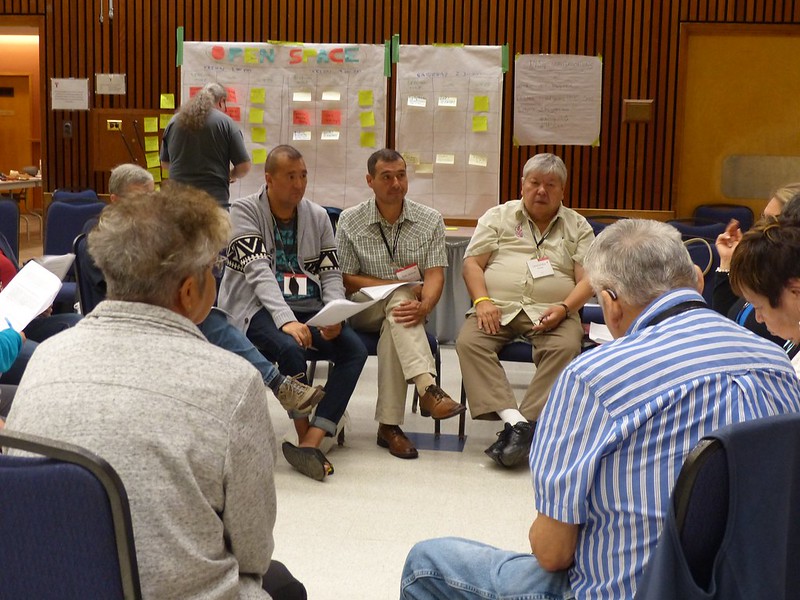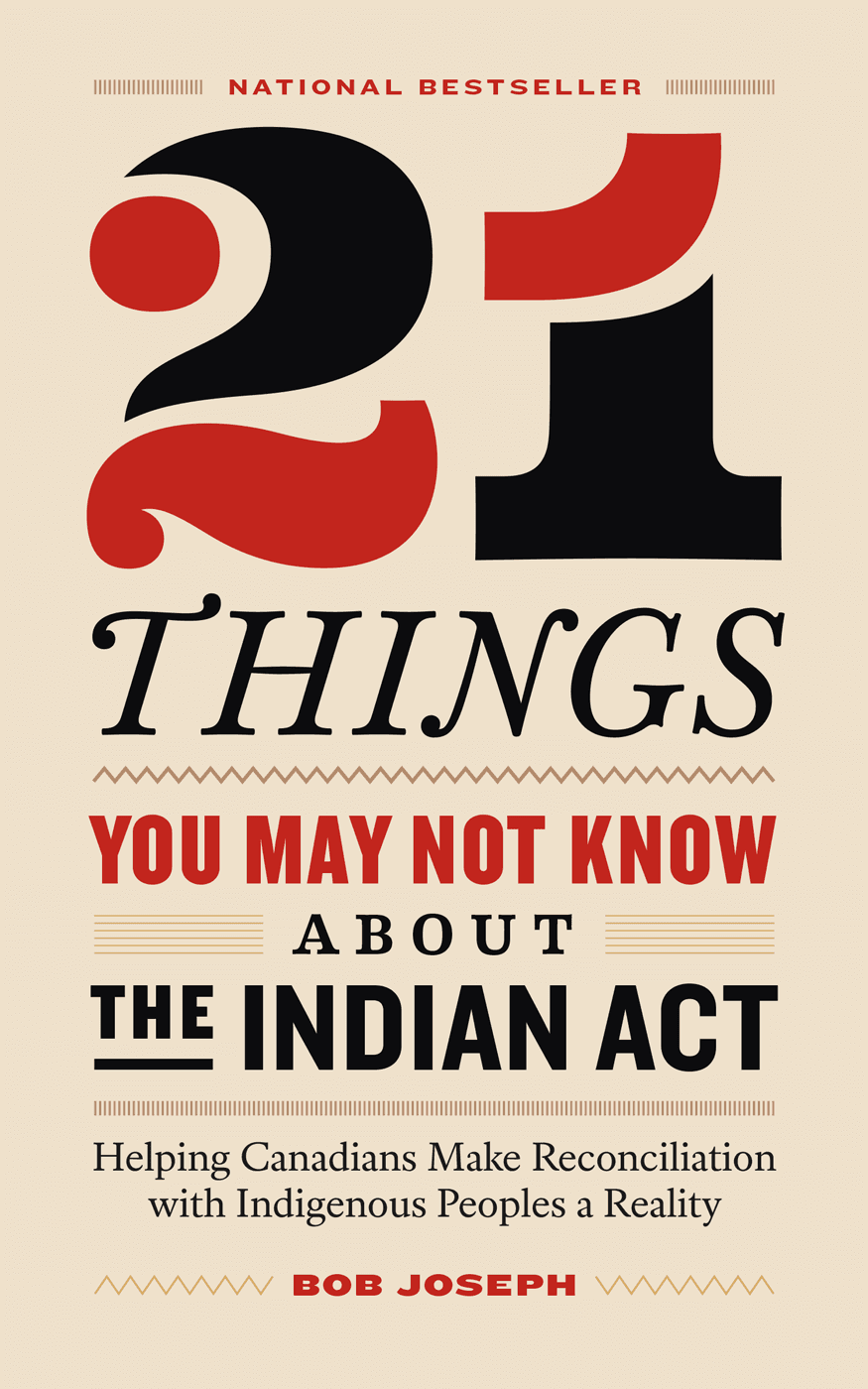
Suggested by Shining Waters Regional Council Living Into Right Relations Circle and Staff
Recommended book store: Indigenous owned and operated GoodMinds.com
A printable PDF of this list is available here.
Books (*fiction)
21 Things You May Not Know About the Indian Act by Bob Joseph  An essential guide to understanding the 1876 Indian Act as a legal document and its repercussion on generations of First Nations, written by a leading cultural sensitivity trainer. The book also provides lists such as a chronology of residential school history, the Truth and Reconciliation Commission’s Call to Action, and terminology. Also provided are selected classroom activities and discussion questions and selected quotes from John A. Macdonald and Duncan Campbell Scott. An essential guide to understanding the 1876 Indian Act as a legal document and its repercussion on generations of First Nations, written by a leading cultural sensitivity trainer. The book also provides lists such as a chronology of residential school history, the Truth and Reconciliation Commission’s Call to Action, and terminology. Also provided are selected classroom activities and discussion questions and selected quotes from John A. Macdonald and Duncan Campbell Scott. |
||
Braiding Sweetgrass: Indigenous Wisdom, Scientific Knowledge, and the Teachings of Plants by Robin Wall Kimmerer |
||
Call Me Indian: From the Trauma of Residential School to Becoming the NHL’s First Treaty Indigenous Player by Fred Sasakamoose |
||
*Cottagers and Indians by Drew Hayden Taylor |
||
*Five Little Indians by Michelle Good |
||
Healing Haunted Histories: A Settler Discipleship of Decolonization by Ched Myers and Elaine Enns |
||
*If I Go Missing by Brianna Jonnie with Nahanni Shingoose |
||
*Indians on Vacation by Thomas King |
||
| *Moon of the Crusted Snow by Waubgeshig Rice |
||
The Other Side of the River: From Church Pew to Sweat Lodge by Alf Dumont |
||
The PATH: Communication Strategies for the Reconciliation Era by Sandi Boucher
Using the metaphor of two concurrent Paths, Sandi Boucher has written a thought-provoking guide on how Reconciliation may be achieved between Indigenous and settler cultures. Both elements have lessons to learn; the book’s two sections show methods of building mutual respect and trust. |
||
|
Spirit Bear’s Guide to the Truth and Reconciliation Commission of Canada
|
||
*Take Us To Your Chief and Other Stories by Drew Hayden Taylor
|
||
*This Town Sleeps by Dennis E. Staples
An exploration of the realities of the lives of gay men in small towns and closed societies and the ways history, culture, stories, landscape, and lineage shape our lives and our understanding of the world we inhabit. |
Children’s Books
Fatty Legs by Christie Jordan-Fenton and Margaret Pokiak-Fenton, art work by Liz Amini-Holmes |
||
I Sang You Down from the Stars by Tasha Spillett-Summer, illustrated by Michaela Goade |
||
|
The Orange Shirt Story by Phyllis Webstad
|
||
|
Phyllis’s Orange Shirt by Phyllis Webstad
|
||
|
Treaty Words: For As Long as the Rivers Flow by Aimée Craft, illustrated by Luke Swinson
|
||
|
When We Were Alone by David Alexander Robertson, illustrated by Julie Flett
|
Video Viewing
|
8th Fire: Aboriginal Peoples, Canada & the Way Forward mini series Hosted by Wab Kinew, the series weaves history and present time together not to make non-Indigenous people feel guilty but for both sides to learn about each other and take ownership of the future together. |
|
The Bruce: The Fishing Chiefs pt. 1 of 3 Three part documentary of the settlement history of the Saugeen Peninsula, now called the Bruce Peninsula. |
| Colonization Road references more than 1,600 kilometres of actual roads built by Europeans and Americans towards free plots of land in the mid-1800s. For the settlers, these roads led to a new life in what would become Canada. But for the Indigenous people who lived on the land, the construction of these roads marked the beginning of the dismantling of their land and their culture. |
|
Doctrine of Discovery: Stolen Lands, Strong Hearts A film by the Anglican Church of Canada about the devastating Doctrine of Discovery decision made over 500 years ago when Pope Alexander VI ruled that the lands being “discovered” by European explorers at the time were “empty” land and its millions of Indigenous inhabitants were “non-human”. To this day the doctrine continues to profoundly impact Indigenous and Settler people worldwide. |
|
Dr. Peter Bryce was Ontario’s first Chief of Public Health. In the early 20th Century, as the medical officer with oversight responsibilities for Canada’s Residential School System, Bryce identified the shortcomings of the system’s response to malnutrition and tuberculosis. His reports on the epidemics and recommendations for their remedy were set aside by senior government officers and he was relieved of his duties. In 1922, Bryce published Story of a National Crime, describing the tragic consequences. |
|
A film adapted from the book by Richard Wagamese, Saul Indian Horse is taken forcibly from the land and his family when he’s sent to residential school. There, salvation comes for a while through his incredible gifts as a hockey player. But in the harsh realities of 1960s Canada, he battles racism, cultural alienation and displacement, and the deep effects of his residential school experience. |
|
The profound impact of the Canadian government’s residential school system is conveyed through the eyes of two children who were forced to face hardships and abuses beyond their years, the effects of which persisted throughout their adult lives.
(For rent from NFB $2.95)
|

KIM UYEDE-KAI
COMMUNITIES OF FAITH AND PASTORAL RELATIONS MINISTER; Intercultural Diversity, Anti-Racism and Right Relations Minister
Direct Phone: 647-956-7345
Email: KUyedeKai@united-church.ca
Serves in: Shining Waters Regional Council
Location: Teleworks from her home in Toronto
Role: Kim encourages and connects communities of faith in their work and supports Indigenous ministries in their relationship with the region and promotes and supports racial justice.
Contact Kim about: Anti-Racism; Conflict Resolution; Covenants; Governance; Intercultural Ministry; Right Relations; Vision and Mission

